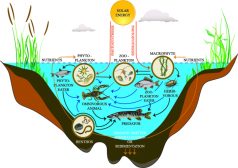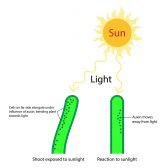Definition
noun, plural: renaturations
(molecular biology) The conversion of denatured protein or nucleic acid to its native configuration
Supplement
Renaturation in molecular biology refers to the reconstruction of a protein or nucleic acid (such as DNA) to their original form especially after denaturation. This process is therefore the inverse of denaturation. In denaturation, the proteins or nucleic acids lose their native biomolecular structure. For instance, a DNA molecule is denatured through heating. The heat-denatured DNA separates into two strands. As for proteins, denaturation is carried out by the application of an external stress or compound such as a strong acid or base, a concentrated inorganic salt, an organic solvent, radiation, or heat.1. Reconstructing the denatured nucleic acid or protein into its original form is done by the process of renaturation. For instance, a heat-denatured DNA can revert to its original form by cooling slowly the two strands and then reform into its original double-stranded helix. A denatured protein may be restored following denaturation although it is not as common as it can be done on denatured nucleic acids. One way through which a denatured protein is restored to its original form is by removing the SDS and denaturing agents following denaturation during PAGE or IEF protein identification.2
See also:
- denaturation
- Reannealing
- Repetitive dna
- Single stranded dna
- Foldback dna
- Annealing
Reference(s):
1 Denaturation (biochemistry). (n.d.) Mosby’s Medical Dictionary, 8th edition. (2009). Retrieved March 23 2015 from http://medical-dictionary.thefreedictionary.com/Denaturation+(biochemistry).
2 Rosenberg, I. (2005). Protein analysis and purification benchtop techniques. Boston: Birkhäuser.







